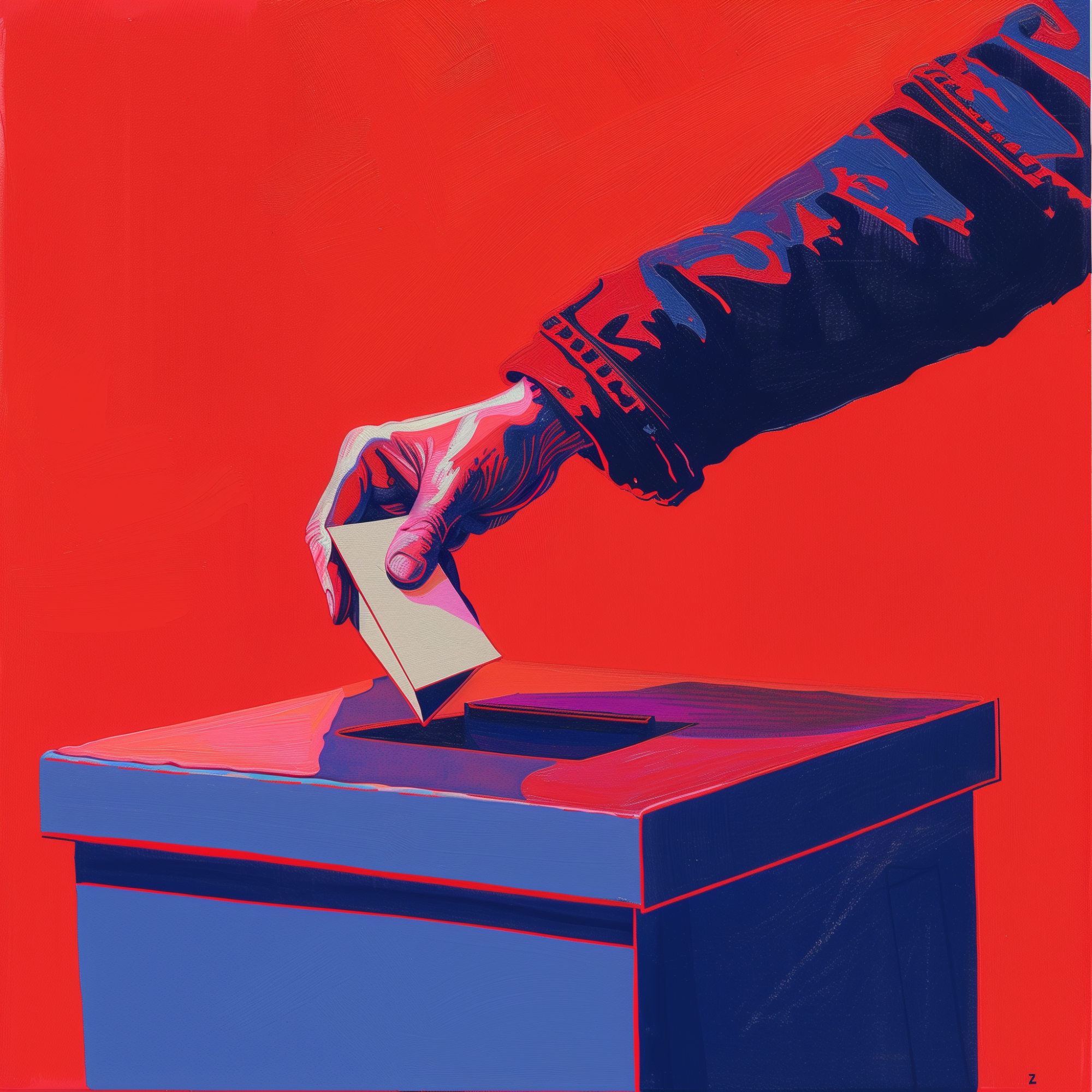Blog
Super Tuesday is a pivotal day in American presidential elections, marking a significant point in the primary election process where the largest number of delegates are up for grabs. For independent voters, navigating the complexities of participating in these primaries can be challenging due to the varying rules from state to state.
According to a study conducted by the Unite America Institute, closed primaries disenfranchise approximately 23.5 million unaffiliated voters in the 22 states that have them. Even in those states that have semi-closed, semi-open, or open primaries, certain rules could hinder independent participation.
What primaries can independents vote in on Super Tuesday? Below, we’ll give you a state-by-state breakdown on how independents can have their voices heard on Super Tuesday.
What Is Super Tuesday?
Super Tuesday is the day when the greatest number of U.S. states hold primary elections and caucuses. This presidential election cycle, Super Tuesday will take place on Tuesday, March 5, 2024 in 16 states and one U.S. territory:
Alabama
Alaska
Arkansas
California
Colorado
Iowa
Maine
Massachusetts
Minnesota
North Carolina
Oklahoma
Tennessee
Texas
Utah
Vermont
Virginia
American Samoa
Super Tuesday is a pivotal moment in the presidential election cycle because it often determines the front-runners for the major political parties.
The concept of Super Tuesday began in the 1980s as part of a strategy for southern states to exert more influence in the nomination process. Over the years, its significance has grown, making it a decisive day for presidential candidates to secure the delegates necessary for securing a party's nomination.
Understanding Primary Elections: A Brief Overview
Before diving into the specifics of how independent voters can participate in Super Tuesday, it's essential to grasp what a primary is and the different types of primaries that exist.
Primaries are preliminary elections in which voters select their preferred candidates to run in the general election.
Primaries are a critical component of the democratic process that allows parties to narrow down their field of candidates. However, the type of primary and rules imposed by the states and two establishment parties determine the level of participation allowed for independent and third-party candidates.
States and U.S. territories generally have one of four types of primary:
Open Primaries: Voters of any affiliation may vote in the primary of any party. They are not required to be members of a party to participate.
Closed Primaries: Only voters who are registered members of a party can vote in that party's primary.
Semi-Closed Primaries: Unaffiliated or independent voters can participate in the primary of their choice but may have to register with that party temporarily. Registered party members can only vote in their own party's primary. In some cases, once a voter is registered with a party, they must remain affiliated with it through the general elections.
Semi-Open Primaries: Voters can choose privately in which party's primary they want to vote without having to register with the party.
Note that variations of these four types of primary elections exist. Check the list below for details on how independent voters can vote in different states’ primary elections.
State-by-State Guide for Independent Voters on Super Tuesday
Alabama: Independent voters in Alabama are able to participate in the primary of their choice without having to register with a specific political party. However, voting in one party's primary will prevent you from voting in another party's runoff should there be one.
Alaska: Alaska is a non-partisan top-four primary state for congressional and statewide offices (meaning that the top four candidates from the primary move on to the general election), but is a closed state for presidential primaries. However, the Democratic Party now allows independents to vote in their presidential primaries. The Republican primary is open to registered Republicans only.
Arkansas: Like Alabama, Arkansas does not require voters to register with a party. Independent voters can choose which primary to vote in on Super Tuesday.
California: California operates on a semi-closed primary system for presidential elections, and is a non-partisan top-two primary state for local and state offices. Independents can vote in Democratic and other parties' primaries that allow non-affiliated voters, but they must request the specific party's ballot they wish to vote for.
Colorado: Colorado holds open primaries for independent voters, who can choose to participate in either the Democratic or Republican primaries without changing their independent status. However, Colorado is an open partisan with a partisan registration state for congressional and state-wide races.
Iowa: Iowa's caucus system is traditionally closed for the presidential election, but rules can vary by political party. Independents wishing to participate must register with the party on the day of the caucus. Iowa is, however, an open primary state with partisan registration for congressional and stateside elections. Although Democrats didn’t participate in the caucuses this year, they will release their presidential preference results for the state on Super Tuesday.
Maine: Maine has closed presidential primaries, so independents need to register with a party in advance if they wish to participate in its primary election. However, the primaries are semi-open with partisan registration for congressional and state-wide contests.
Massachusetts: Independent voters (those registered as "unenrolled") in Massachusetts can choose to vote in any party primary without changing their official registration.
Minnesota: Minnesota offers open presidential primaries, so independent voters can select a party's ballot on the day of the primary. Congressional and state-wide prairies are semi-open with partisan registration.
North Carolina: The state operates on semi-closed primaries. They’re open for presidential races, but only open with partisan registration for congressional and state-wide contests. Unaffiliated voters in North Carolina may choose which party's primary to vote in, but party-affiliated voters are restricted to their party's ballot.
Oklahoma: Oklahoma has closed primaries, but the Democratic Party allows independents to participate in its primary elections.
Tennessee: Tennessee's presidential primaries are open, allowing independent voters to vote in the primary of their choice without pre-registering with a party. However, congressional and state primaries are only open with party registration.
Texas: Texas holds open primaries for presidential races, but congressional and state contests are open with partisan registration. However, participating in a party's primary or convention makes you affiliated with that party for that year.
Utah: In Utah, the Democratic primary is open to independents for presidential, congressional, and state-wide races, while the Republican primary is closed to non-party members.
Vermont: Vermont maintains open presidential primaries, so independents can choose on the day of the primary which party's ballot to take. However, Congressional and state races are open with partisan registration.
Virginia: With no party registration required, Virginia's presidential primaries are open to all voters, including independents. Congressional and state races are open with non-partisan registration.
American Samoa: Although American Samoa doesn’t contribute any Electoral College votes in presidential elections, the U.S. territory still holds caucuses on Super Tuesday. The Democratic Party caucus in American Samoa is open, allowing independents to participate. As of this writing, Republican participation is yet to be determined.
State-Specific Information for Independent Voters
As you can see, each state has unique rules that affect how independent voters can participate in the primaries. Here are some specific considerations for each state mentioned, which can be particularly helpful for independent voters:
Alabama, Arkansas, Tennessee, Texas, Vermont, Virginia, and Minnesota have open presidential primaries or caucuses, making it easier for independent voters to participate without having to declare a party affiliation.
California and Colorado offer semi-closed primaries, allowing independents to vote in certain party primaries if they request to do so, which can be a great way to participate without fully committing to a political party.
Massachusetts' "unenrolled" status is a unique feature that allows voters to remain independent while still participating in the party primary of their choice on election day.
Oklahoma and Utah have specific rules allowing independents to vote in Democratic primaries, but not those for Republican candidates, highlighting the importance of knowing party-specific rules.
Maine and Iowa require more planning for independents, as they have closed primaries or caucuses. Independents must register with a political party by a certain deadline if they wish to participate on Super Tuesday.
North Carolina's semi-closed primary system allows unaffiliated voters some flexibility, but knowing which primary you wish to vote in ahead of time can save time and ensure your vote is counted where you want it to be counted.
Incorporating these specifics into your voting plan as an independent can make the voting process smoother and ensure that your voice is heard in the primary elections. Remember, the rules can change, and deadlines for registration or party affiliation changes are critical. It’s important to verify the most current requirements with your state's election board well in advance of Super Tuesday.
Guidelines on Voter Registration Deadlines and Requirements
While all of the primaries and caucuses on Super Tuesday take place on the same day, Tuesday, March 5, 2024, each state has its own registration deadlines and requirements. Here’s a general overview:
Voter Registration Deadlines: Most states have a voter registration deadline ranging from 15 to 30 days before the primary. However, some states allow same-day voter registration, especially for primaries and caucuses. Always verify the registration deadline for your state.
Party Affiliation Change: In states with closed or semi-closed primaries, check the deadline for changing your party affiliation if you wish to participate in a party's primary. Some states require this change to be made weeks or even months before the primary election.
Mail-in and Absentee Voting: Pay attention to deadlines for requesting and submitting mail-in or absentee ballots if you plan to vote this way. These deadlines can be different from in-person voting registration deadlines.
Early Voting: Some states offer early voting, which can have different voter registration requirements. Check if early voting is available in your state and what the deadlines are.
How to Find Voter Information in Your State
In order to get the most accurate and up-to-date information regarding registration deadlines and other specifics for your state, follow these steps:
Visit the Official State Election Website: Every state has an official election website that provides comprehensive details on voting in primaries, including registration deadlines, party affiliation changes, and voter ID requirements.
Contact Your Local Election Office: Local election offices can provide personalized assistance and up-to-date information relevant to your specific situation.
Use Reputable Voter Information Platforms: Various non-partisan organizations provide state-by-state guides to voting in primaries, including registration deadlines and how to participate as an independent voter.
Here are some examples of where you can find specific rules and requirements for your state:
Alabama: alabamavotes.gov
California: sos.ca.gov/elections
Texas: votetexas.gov
You can also contact your city or state election board or check the national Secretary of State directory to obtain contact information for your specific location.
By following these steps, you can ensure that you meet all the necessary deadlines and requirements to participate in Super Tuesday’s primaries and caucuses as an independent voter. Being proactive and checking these details in advance can help avoid any last-minute complications on election day.
The Power of Independent Voters
As an independent voter, your participation in the 2024 primary elections is crucial. Unfortunately, the political establishment has set rules in place that could potentially prevent independents from fully engaging in the elections despite a desire to do so.
Although the rules vary across states, there are opportunities for independent voters to engage in the political process and have your voice heard. It's important to check your state's specific requirements and deadlines in advance to ensure that you can participate without issue.
Your vote is your voice. Make it count this Super Tuesday!
Join the Growing Independent Movement
The independent movement in America is growing, and Good Party is growing along with it. We’re not a political party. We’re a community of individuals who are tired of politics as usual and ready for change.
Want to get involved? Join the conversation on our Discord server, volunteer to support the independent movement, or even run for office as an independent candidate in your local community.

